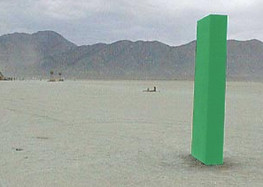COP30 Brazil – 2/5 - The Trans-Arabian Railway as a powerful impetus for decarbonized mobility
- Green Basalt Consulting
- 18 nov. 2025
- 2 min de lecture
Dernière mise à jour : 29 nov. 2025

Will Mecca become home to the largest train station in the Arab World? Could Saudi Arabia announce at the next COP the launch of the largest decarbonized mobility project in the Arab World with the Trans-Arabian Railway?
From a Frenchman, this question isn't so out of place.
To build a highly centralized Royal State, France founded engineering schools like the #ecolenationaledespontsetchaussées in 1747 and the Ecoles des #MinesParis in 1783. The French Ferdinand de Lesseps who launched the construction of the Suez Canal in 1859 and the Panama Canal in 1880, also contributed to forging a French culture of major public works that culminates with the High-Speed Train, which holds the world rail speed record of 574.8 km/h.
A French railway expertise since 1839 with the manufacturer #Alstom, which recently secured orders for 316 suburb wagons for New York, ($2.3 billion), 50 High-Speed Trains for Eurostar, (€1.4 billion), and 42 trains plus options for 30 in Poland (€1.6 billion).
Train is the mode of transport with the lowest GHG emissions, the safest, and the highest passenger capacity. For example, a Paris-Barcelona journey pollutes 70 times less by High-Speed Train than by plane. For example, to travel the 505 km from Paris to the port of Brest, a passenger emits 1.83 kg CO₂ equivalent by High-Speed Train, compared to 131 kg CO₂e by plane. And electric or hydrogen-powered aircraft with large passenger capacity are technical utopias.
The #2030Expo in Riyadh is expected to attract 40 million visitors. The #FIFAWorldCup2034 in Saudi Arabia is expected to attract 10 million football fans. Pillars of the Kingdom's economic diversification strategy, #Qiddiya Theme Park will open on December 31, 2025, joining the historic sites of #Diriyah and #AlUla, and the luxury sites of #Neom and those of the Red Sea, with the ambition of bringing 150 million visitors annually from 2030. Among them will have to transport the 30 million Pilgrims each year expected from 2030, during the short period of Hajj and the more open period of Umrah.
Big airports are under construction in Saudi Arabia, but will they be able and should they handle the tens of millions of passengers each year? The #PublicInvestmentFund and the #SaudiArabiaRailways, which have already launched the Haramain Highspeed Railway between Mecca and Medina, could provide a solution.
The Trans-Arabian Railway, starting in Cairo, the capital of Egypt, the most populous Arab country, and terminating in Mecca, would be a remarkable technical and environmental achievement. Beyond, with another section starting in Damascus, the former capital of the Umayyad Caliphate, and passing through Baghdad, the former capital of the Abbasid Caliphate, the Trans-Arabian Railway, launched by the Custodian of the Two Holy Mosques, would, in the long term, embody the emergence of the Kingdom of Saudi Arabia as the Great Power of the Arab world.
